The Estonian Cello
The strength and richness of Estonian classical music has its origins in two contrasting schools – the international outlook taught by Heino Eller in Tartu and the craftsmanship fostered by Artur Kapp in Tallinn. This album presents Eller’s complete output for cello and piano in its first recording, complemented by works by two of his more important students, Eduard Oja and Eduard Tubin. Villem Reimann and Herman Känd, both students of Kapp, had very different careers, Reimann an established professor in Soviet Estonia, and Känd dying unknown in American exile at only 46. This is the first recording of any of his music in over half a century.
Valle-Rasmus Roots, cello
Sten Lassmann, piano
Heino Eller(1887-1970)
- Old Dance in G major (1913) (3:37)
- Prelude in G minor (1917)* (4:10)
- Poem in A flat major (1921)* (4:40)
- Evening Song in G major (piano orig. 1921) (2:26)
- Romance in G major (1924) (3:55)
- Andante serioso in D minor (1931) (4:10)
- Prelude in E minor (piano orig. 1942, arr. 1965)
- Ballade in E minor (1944) (8:08)
Eduard Oja(1905-1950)
Trilogy of Time for cello and piano (1934)* (5:34)
- I. Life (1:55)
- II. Eternity (2:21)
- III. The Present Day (1:18)
Villem Reimann (1906-1992)
- Lullaby (c. 1930) (4:07)
Herman Känd (1905-1952)
- Poème d’amour (1933) (1:54)
- Ballade (1930s) (5:11)
Eduard Tubin (1905-1982)
Cello Concerto (1955, unfinished)
- I. Recitativo* (9:34)
All Except * First Recordings
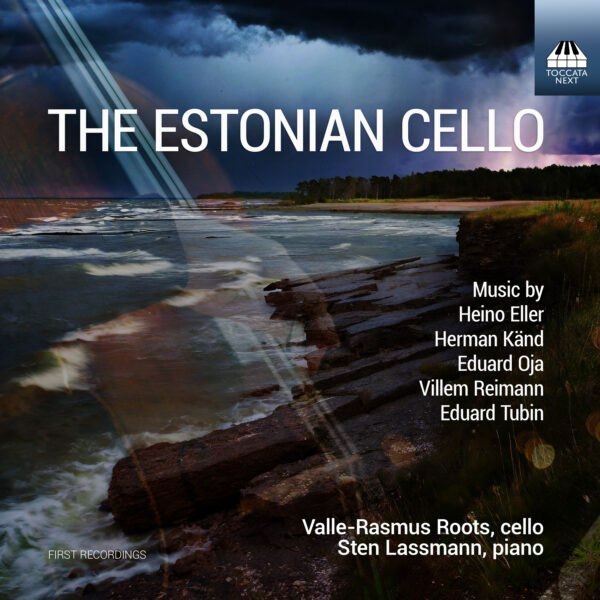
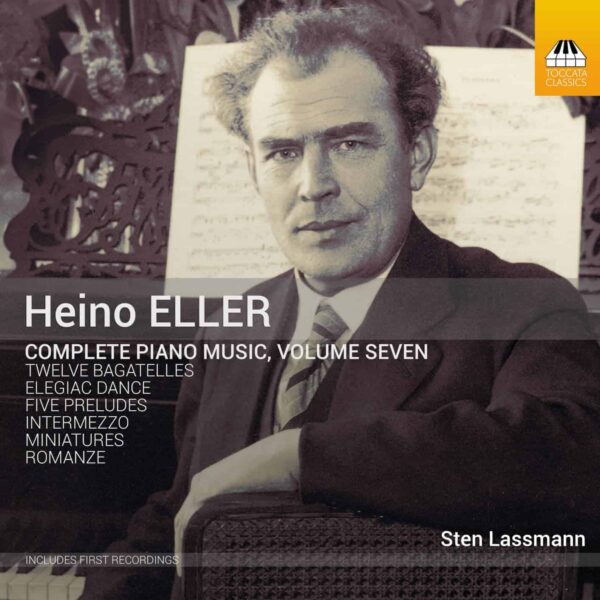
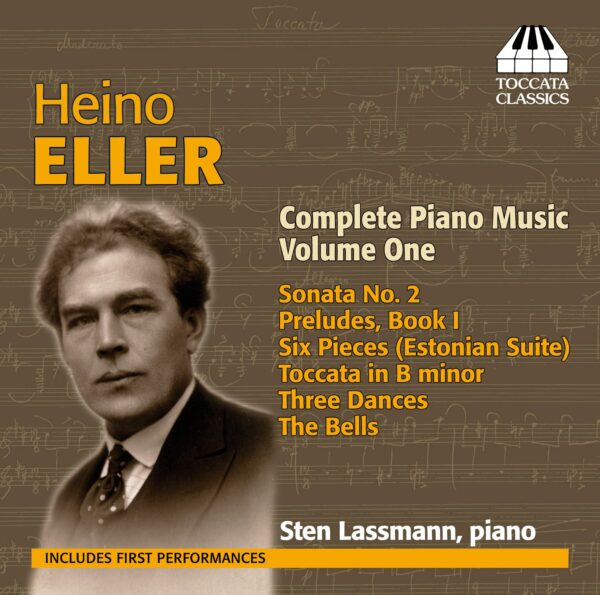
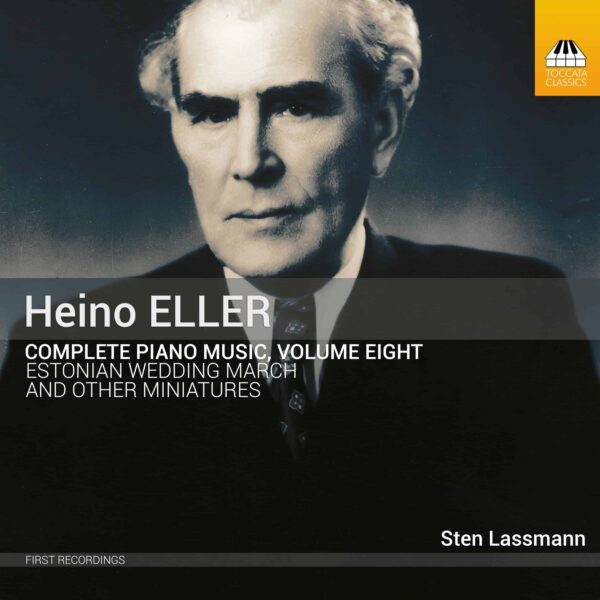
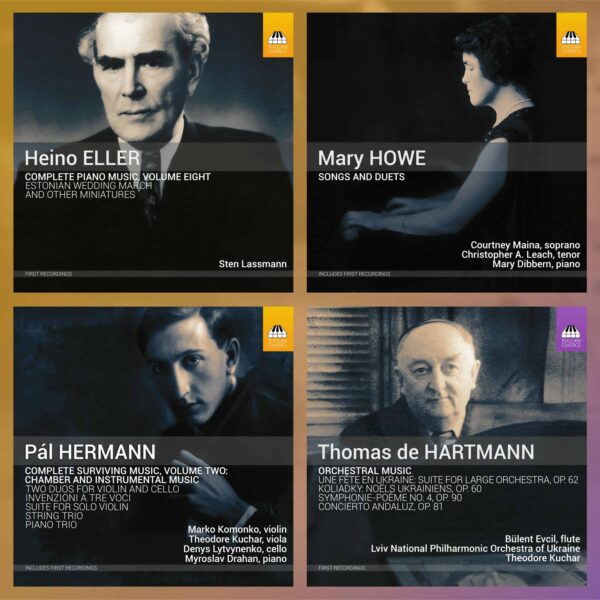
MusicWeb International :
‘Both performers are well inside the music. […]
Fine notes and a well-judged recording complete the disc.’
—Jonathan Woolf, MusicWeb International
Fanfare Magazine :
‘This is a lovely program. […]
Everything on this disc is worth hearing. Pianist Lassmann has been at the center of Toccata’s attention to Heino Eller, and he continues to impress as a pianist who goes far beyond the dutiful in his commitment to the music. Estonian cellist Valle-Rasmus Roots is new to me (and to the pages of Fanfare); he is a welcome discovery. He plays with rich tone, variety of color, and complete involvement. Toccata’s recorded sound is excellent, ideally balancing cello and piano, two instruments that are not always easy to balance.’
—Henry Fogel, Fanfare Magazine, February 2025
AllMusic :
‘Antes Edition’s album entitled Estonian Cello delivers precisely what it advertises: a comprehensive overview of the abundant selection of Estonian composers and their works for cello and piano. […]Performing this pleasingly diverse program is cellist Teet Järvi and pianist Rumessen. […] Järvi’s playing [is] quite admirable; his left hand is extremely dexterous and maneuvers around the cello with a great deal of ease and fluency. His right-arm technique displays a command of a plethora of bow strokes. […] Järvi’s performance of both the Pärt and Tubin shows that he is more than capable of producing a pleasing, quiet, introspective tone’
—Mike D. Brownell, AllMusic
Charlottesville Classica :
‘What a gift to the world. Pianist Sten Lassman and cellist Valle-Rasmus Roots are both Estonian. They both understand the underlying aesthetics of this music. And that understanding illuminates their performances. These are beautifully realized interpretations of exceptionally fine music. Music that rewards repeated listening. […]
A great collection of music you don’t have to be Estonian to appreciate and enjoy.’
—Ralph Graves, Charlottesville Classica